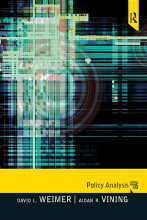Limits to public intervention: government failures
5 important questions on Limits to public intervention: government failures
Despite inherent problems, direct democracy offers several advantages:
- The opportunity for participation encourages citizens to learn about public affairs.
- Actual participation may make citizens more willing to accept social choices that they opposed because they had an opportunity to be heard and to vote.
- It provides a great check on the abuse of power by giving the electorate the opportunity to overturn policies and remove unpopular decision makers.
Legislators, executives, and judges represent the rest of society in the numerous government decisions that constitute public policy. Representatives often face the dilemma of choosing between actions that advantage their conception of the good society and actions that reflect the preferences of their constituencies. Political philosophers distinguish between the roles of the representatives as:
- A trustee: who should act on behalf of what the believes to be his constituency's interest
- a delegate: who should act in accordance with the desire of a majority of his constituency.
From the perspective of economic efficiency, the representatives should select policies for which the present value of benefits exceeds the present value of costs. Self-interest operating in an environment of imperfect monitoring, however, increases incentives for representatives to discount heavily costs and benefits that will not occur in the short run? The two circumstances such myopic judgement is most likely to occur:
- One factor is representatives' perception of their reelection chances.
- Another factor is the ease with which an opponent can draw the attention of the electorate to the yet-unrealized future costs.
- Higher grades + faster learning
- Never study anything twice
- 100% sure, 100% understanding
While decentralization is a desirable, if not essential, structural feature of government, it sometimes limit the effectiveness of public policies. For example, the implementation problem arises. Implementation describes:
The implementation problem for decentralized governments arises when:
- The distribution of necessary elements. The greater the potential for either persons or organizations to withhold their necessary contributions, the greater the possibility of failure.
- When central governments must rely on lower levels of government to act.
- When cooperation among organizations with different responsibilities or in different jurisdictions is required for effectively solving problems.
The question on the page originate from the summary of the following study material:
- A unique study and practice tool
- Never study anything twice again
- Get the grades you hope for
- 100% sure, 100% understanding

Topics that are related to Limits to public intervention: government failures
-
Limits to public intervention: government failures - Problems inherent in direct democracy - The paradox of voting
-
Limits to public intervention: government failures - Problem inherent in representative government - Rent seeking: diffuse and concentrated interests
-
Limits to public intervention: government failures - Problems inherent in bureaucratic supply































